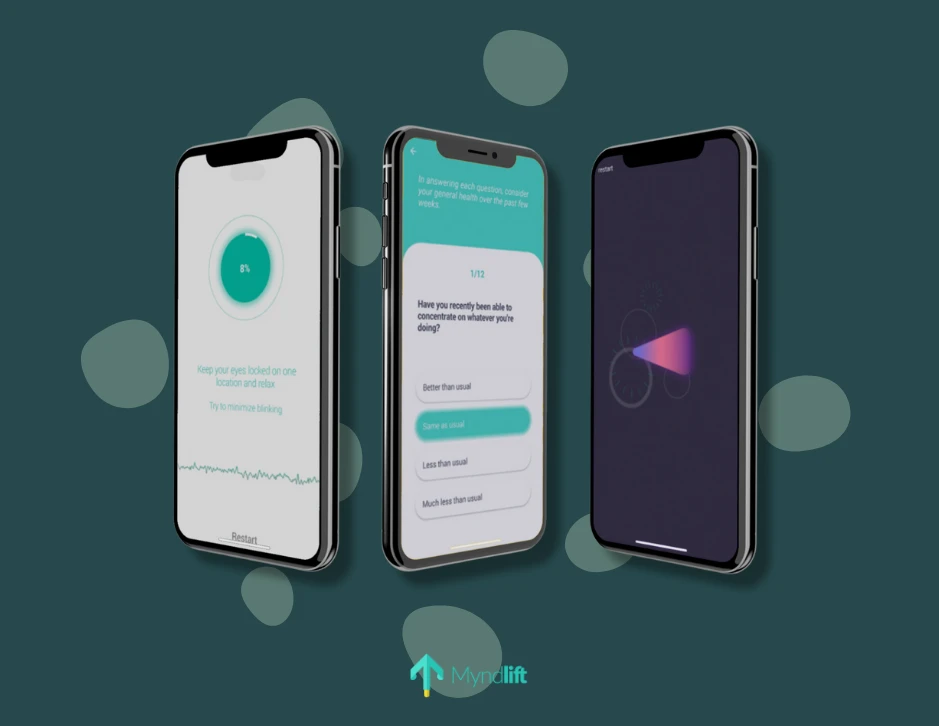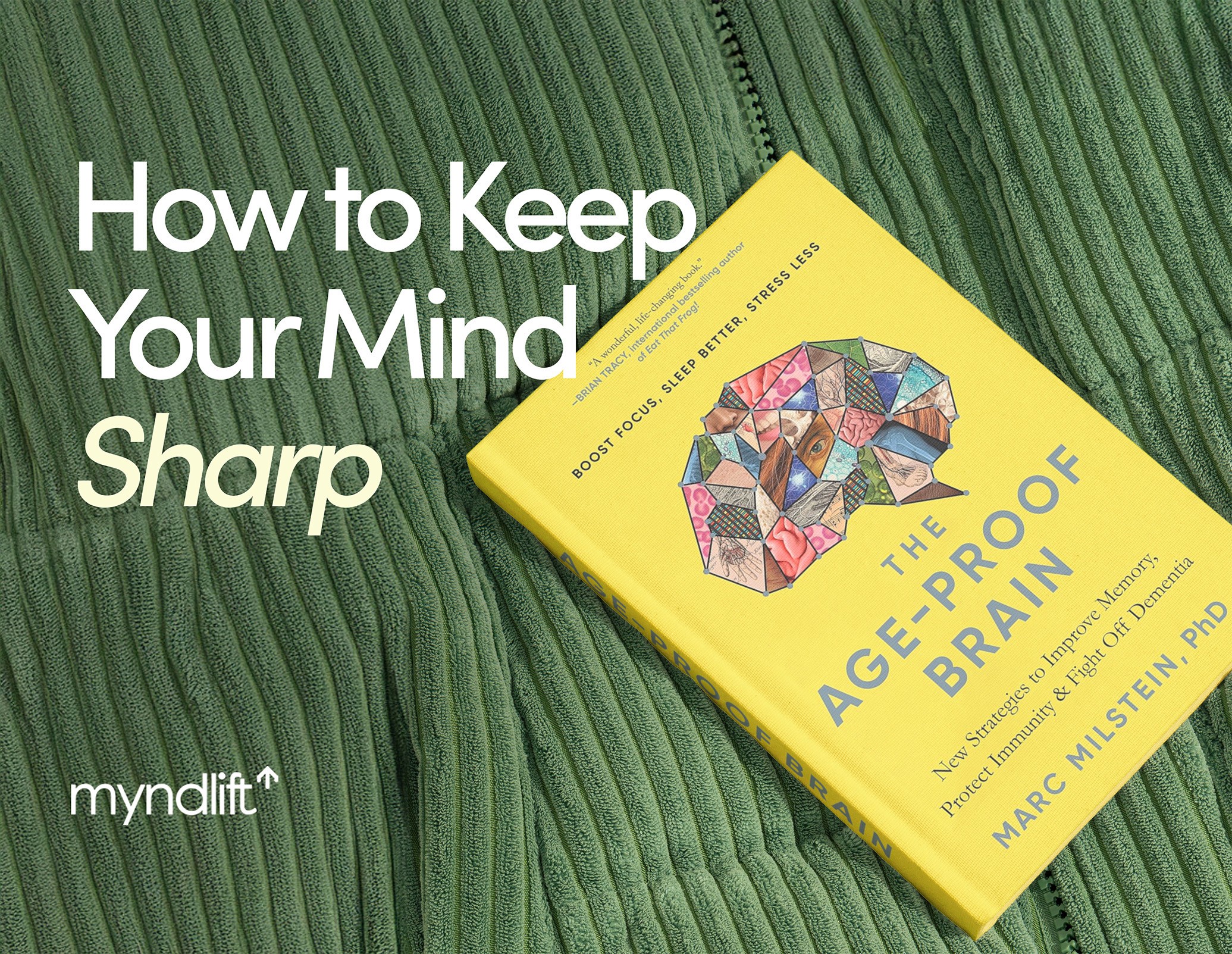For many, ADHD is a diagnosis they receive as children, bringing clarity to feeling restless, acting on impulse, or losing themselves in daydreams. For others, especially women, the journey to a diagnosis may not be so straightforward.
In fact, women with ADHD are often diagnosed later in life, typically between the ages of 36 and 38, after years of adapting to their symptoms without realizing they stem from a specific condition.
For some, this diagnosis brings a sense of relief and newfound clarity. Yet, for women in their 40s and 50s, the journey can take on an entirely different shape.
As they enter perimenopause and menopause, fluctuating levels of estrogen and progesterone—hormones that typically help regulate the feel-good hormones—can amplify their ADHD symptoms in unpredictable ways, or even bring new symptoms to the surface.
But why is that? In this article, we’ll explore:
1) How ADHD can change during perimenopause and menopause
2) Ways to manage your ADHD symptoms during menopause and perimenopause
How Your ADHD Can Change During Perimenopause and Menopause
The hormonal changes associated with perimenopause and menopause can lead to several changes in the brain, including reduced connectivity between brain cells and impaired neuroplasticity (the brain's ability to adapt and reorganize itself).
These changes, driven by fluctuations in estrogen and progesterone—hormones critical for regulating neurotransmitters like dopamine and serotonin—can disrupt brain function.
As a result, many women experience memory problems, overwhelm, and worsening ADHD symptoms.
In one self-report study, 61% of women reported that ADHD had the greatest impact on their daily lives between 40 and 59 years of age, coinciding with the perimenopausal and menopausal window.
Interestingly, almost half of women said they were first diagnosed with ADHD between ages 41 and 50, suggesting their ADHD only became apparent during the perimenopausal/menopausal transition.
The most impactful symptoms to these women during this period were memory problems and overwhelm.
However, by age 60, only 3% of women still report worsened ADHD symptoms, suggesting that the sea of hormonal shifts has calmed.
The evidence suggests that symptoms either diminish or adjust as women move out of the perimenopausal and menopausal transition years.
But what can you do in the meantime if perimenopause or menopause has intensified your ADHD symptoms?
Let’s explore strategies to help you manage them effectively during this stage.
How to Manage ADHD During Perimenopause and Menopause
Managing your ADHD and perimenopause/menopause starts with consulting a mental health professional. They can give you a safe, confidential space to process the difficult feelings this life period may stir up.
From there, there are additional ways to cope and support your well-being during this stage.
1.Get a health evaluation
Getting a health evaluation for ADHD involves a specialist assessment by an experienced mental health professional who is qualified to make an accurate diagnosis.
As part of an ADHD assessment, you may be asked to discuss your overall mental health, mental health history, and current symptoms. So, if they do ask about these things, don’t worry. This is normal.
It’s possible your doctor will recommend systemic hormonal treatment for menopause and ADHD. Systemic hormonal treatment is given in various forms (tablets, sprays, patches) and is primarily used to treat symptoms relating to your blood vessels, such as hot flushes and sweating.
However, it’s important to know that cognitive changes such as brain fog may not necessarily improve with menopausal hormone therapy.
Canadian gynecologist Jen Gunter argues in her book, ‘The Menopause Manifesto’, that if you’re not noticing improvements, increasing the dose of estrogen is unlikely to be the answer—although some women may witness indirect benefits of cognitive symptoms through a reduction in their physical symptoms.
2. Focus on your stress levels
According to The Menopause Manifesto’, society often places unique pressures on women, such as unequal pay and a higher risk of job loss during times of financial crisis.
As a result, many women in midlife are under incredible amounts of stress, carrying additional financial and caregiving responsibilities compared to men. What’s more, evidence shows that women often underestimate the stress they’re experiencing, which could mean they don’t act to manage it.
There’s no easy fix for life stress, but consulting a mental health professional can help. They may be able to provide coping strategies and help you frame life stressors differently.
3.Differentiate normal signs from warning signs
Brain fog and memory problems, among other cognitive symptoms, can be a hallmark of ADHD during the perimenopausal and menopausal transition. However, it’s important to remember that, to some extent, cognitive changes are a normal part of aging.
For example, a shorter attention span and a slower rate of learning new information are not necessary causes for concern.
However, it’s best to keep an eye on your symptoms and differentiate natural symptoms, and those of ADHD, from cognitive changes that potentially indicate something more serious.
Mild cognitive impairment (MCI) can be an early warning sign of dementia. Possible warning signs include:
Loss of older memories
Impaired reading and comprehension
Inability to perform day-to-day tasks as normal (like shopping or using the telephone)
Being aware of these signs can help you act early, which can prevent further potential cognitive changes.
If you notice these signs, reach out to your healthcare practitioner. You may be referred for a neuropsychiatric test if your memory continues to worsen with no explanation, or if it starts to interfere with your normal, daily living.
4. Journal
Journaling is a practice of regularly writing down your thoughts, experiences, and reflections, and it’s thought to help boost your well-being.
Journaling can also be a great way to track your ADHD symptoms—it might help you notice and gain clarity on what you’re struggling with most, which can help point you to the right treatment option for you.
In fact, research shows that journaling can also help adults with ADHD who struggle with their working memory, as journaling can act like a memory aid or prompt.
5.Do regular cardio exercise
Exercise, and cardio exercise in particular (e.g., treadmill running and cycling) can reduce core ADHD symptoms, including struggles with working memory, response inhibition, cognitive flexibility, risk-taking, and planning.
Furthermore, cardio exercise can also enhance your motivation by boosting dopamine levels—a neurotransmitter that plays a key role in the brain's reward system and drive to take action.
So, incorporating regular cardio exercise may help to manage your ADHD symptoms during the transitional period of perimenopause and menopause.
Final Word on ADHD and the Perimenopause and Menopause
The menopause transition can feel like a break in your stride, especially if ADHD symptoms suddenly present or your existing symptoms worsen. Navigating ADHD through perimenopause and menopause can be challenging. However, knowing what’s happening and how to manage it can help you stay in control.
With the right support—from consulting professionals to embracing lifestyle changes like journaling, exercise, and mindfulness—you can take steps to reduce your symptoms and improve your daily life.
You’re not alone, and with each strategy you try, just know that you’re closer to finding what works best for you. It will get easier.
Myndlift provides a personalized expert-guided brain health program that can help you elevate your wellbeing by improving your sleep quality, focus, calm, and self-control over mood. Take this 10-second quiz to check if you’re eligible to kick-start your journey for better brain health.
About the author:
Emma Loker
Emma is a practicing trainee Child and Adolescent Psychotherapist studying at the University of Cambridge and a psychology writer with years of experience. She achieved a 1st Class Honors Degree in Psychology from Aston University in Birmingham.
About the checker:

Haining Cui, Ph.D.
Haining Cui, PhD, is a data-driven neurolinguist with deep expertise in neurocognitive research. He specializes in data analysis, statistical modeling, and experimental design, turning complex datasets into actionable insights.
References
Heijer, A. E. D., Groen, Y., Tucha, L., Fuermaier, A. B. M., Koerts, J., Lange, K. W., Thome, J., & Tucha, O. (2016). Sweat it out? The effects of physical exercise on cognition and behavior in children and adults with ADHD: a systematic literature review. Journal of Neural Transmission, 124(S1), 3–26. https://doi.org/10.1007/s00702-016-1593-7
McKechnie, D. G. J., O’Nions, E., Dunsmuir, S., & Petersen, I. (2023). Attention-deficit hyperactivity disorder diagnoses and prescriptions in UK primary care, 2000–2018: population-based cohort study. BJPsych Open, 9(4). https://doi.org/10.1192/bjo.2023.512
Mitchiner, T. L. (2024). Expressive Art Journaling as a Coping Mechanism for Healing Hearts and Minds (Doctoral dissertation, Regent University).
Peacock, K., Carlson, K., & Ketvertis, K. M. (2023, December 21). Menopause. StatPearls - NCBI Bookshelf. https://www.ncbi.nlm.nih.gov/books/NBK507826/#:~:text=that%20controls%20symptoms.-,Systemic%20Hormonal%20Treatment%C2%A0,-Hormonal%20therapy%20is
Santoro, N., Epperson, C. N., & Mathews, S. B. (2015). Menopausal symptoms and their management. Endocrinology and Metabolism Clinics of North America, 44(3), 497–515. https://doi.org/10.1016/j.ecl.2015.05.001
Wasserstein, J., Stefanatos, G. A., & Solanto, M. V. (2023). 2 Perimenopause, Menopause and ADHD. Journal of the International Neuropsychological Society, 29(s1), 881–881. doi:10.1017/S1355617723010846
Xue, J., Zhang, Y., & Huang, Y. (2019). A meta-analytic investigation of the impact of mindfulness-based interventions on ADHD symptoms. Medicine, 98(23), e15957. https://doi.org/10.1097/md.0000000000015957
Gunter, J. (2021). The Menopause Manifesto: Own Your Health with Facts and Feminism. Piatkus.
Whitney, R. V., & Smith, G. (2015). Emotional Disclosure Through Journal Writing: Telehealth Intervention for Maternal Stress and Mother–Child Relationships. Journal of Autism and Developmental Disorders, 45(11), 3735–3745. https://doi.org/10.1007/s10803-014-2332-2




